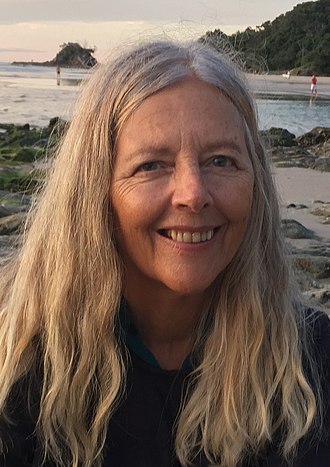Born into an international family, and educated in Sweden, Germany, Austria, England and the United States, Helena specialized in linguistics, including studies with Noam Chomsky at MIT. In 1975, when she was living in Paris, she was invited to accompany a film team to the remote region of Ladakh, or ‘Little Tibet’. The area had been sealed off from the outside world and had only recently been opened. She became the first Westerner in modern times to master the Ladakhi language, and gained deep insights into the workings of one of the few cultures that remained untouched by the modern world.
In 1978 Norberg-Hodge founded the Ladakh Project, which countered the romanticized images of the Western consumer culture while strengthening traditional organic agriculture and introducing renewable energy as an alternative to fossil fuel-based development. This work garnered international respect. Ever since, Norberg-Hodge has been invited to speak at major institutions and universities around the world (including Harvard, Oxford and the World Bank) and has had meetings with prominent policy-makers from the White House to the European Commission.
Her broad international experience forced her to question some of the fundamental assumptions of the modern economy. She became a pioneer of the new economy movement, encouraging social and environmental activists to move beyond treating symptoms and to focus on the need for fundamental change to the economy. In 1992, she brought together leaders from the Global North and South to co-found the International Forum on Globalization, which challenged the global economic system.
In 1983, Norberg-Hodge founded the international non-profit group Local Futures, which she still directs. In that role, she has initiated localization movements on every continent, particularly in South Korea, Japan, the UK, and Australia, and has launched both the International Alliance for Localization and World Localization Day. She also co-founded the Global Ecovillage Network.
Committed to raising awareness of the need for systemic change, she collaborates with thought-leaders, activists, and community groups across the globe.In the early twenty-first century, awareness of our interdependence with the natural world has steadily seeped into the dominant cultural narrative, and with it has come a greater appreciation for non-Western cultures and Indigenous peoples. In virtually every sphere, ecological and socially conscious initiatives have sprouted from the grassroots. From “ecopsychology” to ecological architecture, from human rights campaigns to support for the underprivileged, people have demonstrated their desire to develop kinder, gentler, more sustainable ways of living.
However, in this same period, the global economy—initially propelled by colonialism, slavery, and racist genocide—has continued on its same trajectory. Just as colonization accumulated wealth primarily for global traders, the relentless globalization of the economy is serving an ever-smaller handful of multinational corporations and banks. Under the seductive guise of “progress,” this system continues to undermine land-based economies of interdependence, replacing them with anonymous and unaccountable global supply chains.Ancient Futures, now translated into more than 40 languages, is Helena Norberg-Hodge’s moving portrait of tradition and change in Ladakh, a scathing critique of the global economy, and a rallying call for economic localization.
In the preface, she presents a kaleidoscope of projects around the world that are pointing the way to both human and ecological well-being. These initiatives derive from a growing localization movement, which works to rebuild place-based cultures—strengthening community and our connection with nature. Ancient Futures challenges us to redefine what a healthy society means and to find ways to carry centuries-old wisdom into our future.
